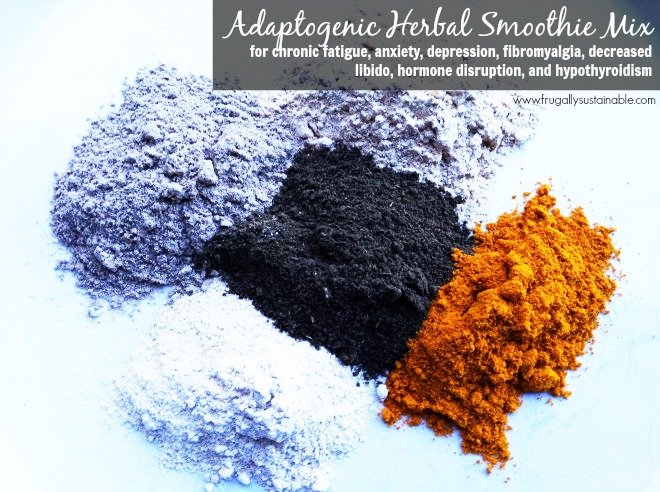Stress doesn’t just affect your mood—it can change your body composition, increase cravings, and make it harder to lose weight. If you’ve been eating healthy and exercising but still see stubborn belly fat, stress hormones—especially cortisol—might be the hidden culprit.
One of the most effective natural strategies to combat stress-related weight gain is using adaptogenic herbs. These botanicals have been used for centuries in Ayurvedic, Chinese, and Siberian medicine to help the body adapt to stress, stabilize hormones, and restore energy balance.
This guide explains how cortisol drives belly fat storage, which adaptogens work best, how to take them, and how to combine them with lifestyle changes for faster, sustainable weight loss.

Cortisol & Belly Fat: The Hidden Link
Cortisol is your body’s primary stress hormone, produced by the adrenal glands. In short bursts, it’s essential for survival—it mobilizes energy, sharpens focus, and helps you respond to challenges.
The problem is chronic stress. When cortisol stays elevated for weeks or months:
-
Your body stores more fat, especially around the abdomen (visceral fat).
-
Blood sugar levels remain higher, increasing insulin production.
-
Appetite-regulating hormones (ghrelin and leptin) become imbalanced.
-
Cravings for high-calorie, high-sugar foods increase.
Research shows that people with chronically elevated cortisol are more likely to gain 5–12 pounds of abdominal fat over time, even if their calorie intake doesn’t change much.
That’s where adaptogens can help.
Top Adaptogens for Lowering Cortisol & Controlling Weight Gain
Adaptogens work by modulating your body’s stress response—neither overstimulating nor sedating you, but helping you return to a state of balance (homeostasis).
1. Ashwagandha (Withania somnifera)
Best for: Reducing anxiety, improving sleep, lowering cortisol
-
Mechanism: Ashwagandha has been shown in multiple studies to reduce cortisol levels by up to 27% within 60 days. Lower cortisol means less fat storage and better blood sugar control.
-
Bonus Benefits: Supports thyroid health, which can further boost metabolism.
-
Dosage: 300–600 mg per day of standardized root extract (withanolides 5–10%).
2. Rhodiola Rosea
Best for: Stress resilience, mental focus, energy
-
Mechanism: Rhodiola supports the hypothalamic-pituitary-adrenal (HPA) axis, reducing cortisol spikes while increasing cellular energy (ATP production).
-
Bonus Benefits: Helps fight “emotional eating” by improving mood and reducing fatigue.
-
Dosage: 200–400 mg per day of extract standardized to 3% rosavins and 1% salidroside.
3. Holy Basil (Ocimum sanctum)
Best for: Reducing stress-induced inflammation, balancing blood sugar
-
Mechanism: Acts as a natural cortisol modulator and antioxidant, reducing oxidative stress that can worsen metabolic dysfunction.
-
Bonus Benefits: Supports liver detoxification, which aids fat metabolism.
-
Dosage: 300–2,000 mg per day of leaf extract, divided into 2 doses.
4. Schisandra Chinensis
Best for: Hormonal balance, endurance, liver health
-
Mechanism: Contains lignans that protect the adrenal glands, helping regulate cortisol release during stress.
-
Bonus Benefits: Enhances liver function for better fat processing and detox.
-
Dosage: 500–1,000 mg of berry extract daily.
5. Panax Ginseng
Best for: Energy, reducing mental and physical fatigue
-
Mechanism: Improves insulin sensitivity, indirectly lowering cortisol-driven fat gain.
-
Bonus Benefits: Boosts stamina, which can enhance workout performance.
-
Dosage: 200–400 mg per day of standardized extract (ginsenosides 4–7%).
How to Take Adaptogens for Maximum Effect
-
Start Low, Go Slow: Begin with the lowest effective dose to see how your body responds.
-
Consistency Is Key: Adaptogens work cumulatively—most benefits appear after 4–6 weeks.
-
Time Them Wisely:
-
Morning: Rhodiola, ginseng (for energy and stress resilience).
-
Evening: Ashwagandha, holy basil (for relaxation and sleep support).
-
-
Cycle for Best Results: Take breaks every 8–12 weeks to prevent tolerance.
Lifestyle Synergy: Pairing Herbs with Stress-Lowering Habits
Adaptogens are powerful, but they work best when paired with lifestyle changes that naturally lower cortisol:
-
Prioritize Sleep: Aim for 7–9 hours. Poor sleep alone can raise cortisol by 37%.
-
Balanced Diet: Focus on whole foods with stable blood sugar impact—lean protein, healthy fats, fiber-rich vegetables.
-
Mindful Exercise: Overtraining can increase cortisol. Opt for moderate-intensity workouts, yoga, or walking.
-
Breathing Techniques: 5 minutes of deep breathing can significantly lower stress hormones.
-
Reduce Caffeine: Excess caffeine spikes cortisol, especially when stressed.
When to Expect Results
-
First 1–2 Weeks: Improved mood, more stable energy.
-
Weeks 3–4: Reduced sugar cravings, better focus, improved sleep.
-
Weeks 6–8: Noticeable reduction in belly bloating, possibly 3–5 lbs lost without major diet changes.
-
Months 3–4: Potential 8–12 lbs weight loss, especially if paired with a balanced diet and regular exercise.
Final Thoughts
Chronic stress can sabotage even the best diet and workout plan by keeping cortisol elevated and pushing your body into fat-storage mode. Adaptogenic herbs like ashwagandha, rhodiola, holy basil, schisandra, and ginseng offer a safe, natural way to restore hormonal balance, curb stress cravings, and support long-term fat loss.
For many people, combining adaptogens with better sleep, moderate exercise, and blood sugar control can lead to sustainable weight loss of 8–12 pounds over 3–4 months—without extreme dieting or dangerous stimulants.
If stress is the hidden roadblock in your fitness journey, adaptogens might be the missing piece that helps you lose belly fat, feel calmer, and regain control of your body.